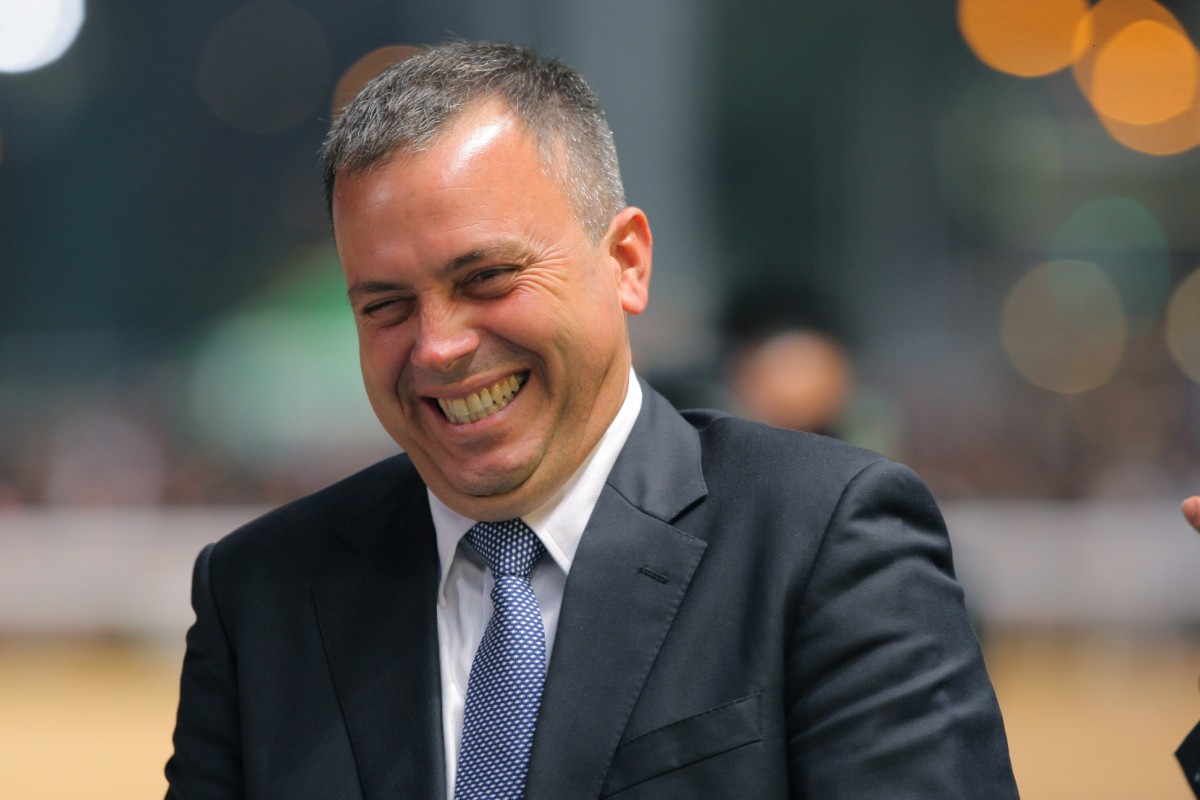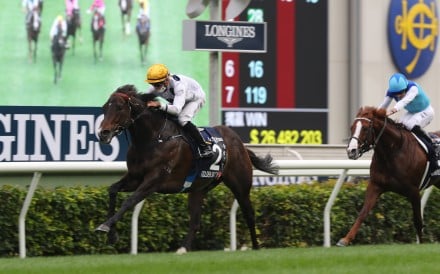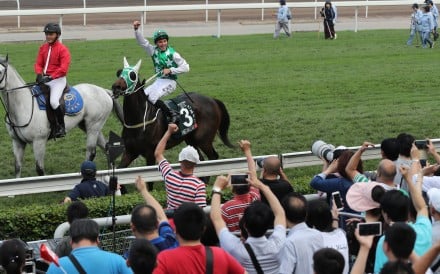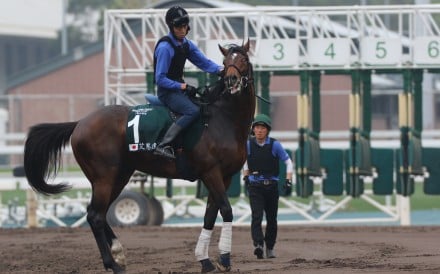Caspar Fownes may play the class clown at times, throwing around Canto curse words to keep the local media entertained and raucously celebrating wins with high fives to anyone within arms reach.
But there’s a serious side to his game, as three championships and his lighting start to this season show, and there’s an argument to be made he is the best all-round trainer in Hong Kong.

Ok, maybe we are arguing for the sake of arguing here – everyone has their strengths and there’s more than one way to make a living training thoroughbreds.
And these “best in…” arguments are painful and never end well – someone always ends up getting blocked on Twitter.
Besides, we all know John Size is god, John Moore has more money than god and Tony Cruz operates in a parallel universe where he manipulates time and space to make small matters like days between runs irrelevant.
Let’s just say Fownes is the “quintessential Hong Kong trainer” and pay respect to a 47-year-old who may be reaching a new peak.
You never really know when a trainer is “training well”, for most of the “work” goes on behind closed doors and between their ears, but trainers live and die by their results, and on that score Fownes would certainly qualify as being in career-best form.
After a phenomenal late-season run to clinch the 2013-14 championship, his early-season statistics are outstanding – 10 wins from just 33 starts, striking at better than 30 per cent – but it’s an examination of the individual winners that provides a background in what makes Fownes great. There is no one better at understanding the nuances of racing here: handicapping, the unique demands of owners, making the most of what you are given within the limitations of cramped training facilities and immovable race programming, and with horseflesh of sometimes questionable quality.
“Playing the system,” they call it, thriving within a heavily structured and restricted environment. And no one does it better than Fownes.
That’s not to say Fownes isn’t an exceptional horseman, which is obvious. The term second-generation trainer gets thrown around a lot in racing, and obviously Caspar’s father Lawrie provided a strong guiding light.

But Fownes is a third-generation trainer, and fourth if you count his cavalryman great-grandfather, with an enchanting family history of horsemanship that stretches back to colonial India.
Of Fownes’ nine winners (Mighty K went back-to-back), only I’m In Charge and Hidden Value could be described as “progressive”.
Others like The Prince and Hurry Hurry Up will never get to Class One. They’ve been up and down in the ratings like a yo-yo, but these honest toilers have won 11 races and more than HK$7.7 million between them. Neither horse would likely last more than a season, or even get through the gate, at any of the revolving door stables of Size, Moore and Cruz.
Lawrie Fownes never had the luxury of big-money owners, and Caspar seems to have inherited his highly principled father’s values of getting the most out of what you have.
He bounces his runners between the three tracks with gear changes or tactical tweaks, without the cynicism some trainers employ to get a horse to drop in ratings points.
And along the way, owners are guaranteed a great time on raceday, and are treated like the stars of the show – in the case of local megastar Aaron Kwok Fu-shing, they really are. A big part of "owner liason" on raceday, and during the week, is Fownes' sister Fenella - who ensures guests are kept entertained and informed, allowing her little brother to focus on other aspects of training.
Most handlers would have had Hurry Hurry Up pigeonholed as a sprinter, and punters certainly did when he started at 19-1 when stepping up to 1,650m on the all-weather track last week.
Then there was Mighty K, winning twice in four days courtesy of another Fownes’ trademark, the meeting-to-meeting back-up – a method rarely and puzzlingly not employed anywhere near as much by his rivals.
When in a slump last season, Fownes openly lamented he sticks with lower-grade horses when others would quit, but the loyalty he shows owners works both ways and has its own rewards.
The Prince raced hopelessly out of his grade last season, languishing near the top of Class Three, but his trainer stayed solid, despite being in a position where he could have easily replaced the horse.
Loyalty and respect works both ways and owner Eddie Junior Yau – who raced The Duke, Fownes’ first Group One winner in 2006 – has now opened his chequebook to bring in a new 85-plus rated import.

That’s not to say Fownes doesn’t know what to do with a good horse. Lucky Nine, supremely talented but with more problems than a second-hand car, is as good an advertisement for the stable as there is. He will be back fresh for a fifth international day, a rising eight-year-old hunting an eighth Group One.
Fownes was gifted early in the off-season with the acquisition of 2012-13 Horse of the Year Military Attack, whose tactical versatility will be fully and fearlessly utilised in the upcoming set-weight races.
He also has two promising talents at the trials this week – Domineer and Gun Pit – stationed at the bottom of Class Two with scope to climb higher.
Maybe what makes Fownes different is he hasn’t come here to make his millions, then leave for a life of luxury when it’s all over.
He is Hong Kong through and through, hardwired into the city’s racing culture and trains accordingly. If the old adage “horses for courses” is true, then pound for pound Fownes just might be the best.


















